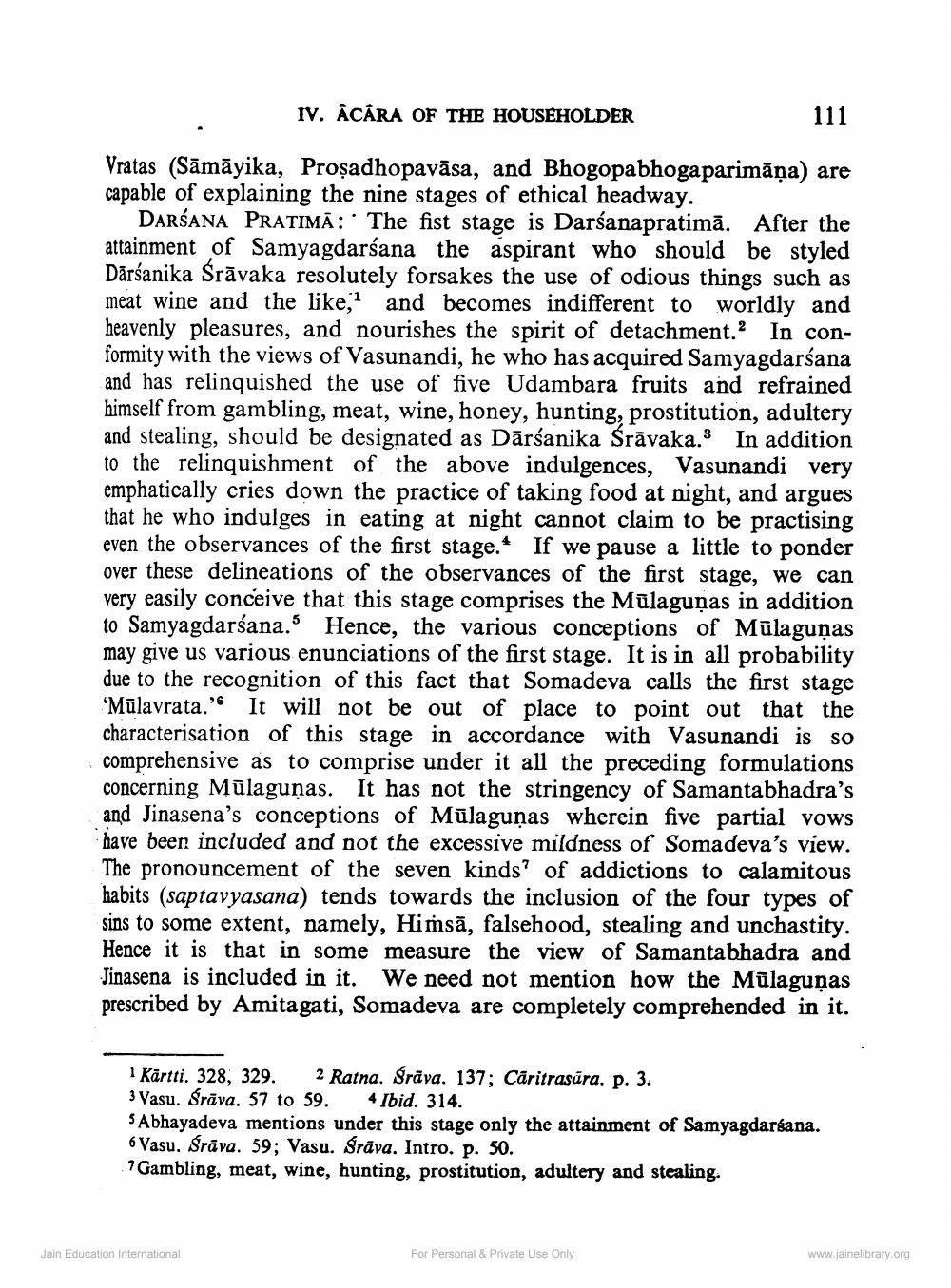________________
IV. ACARA OF THE HOUSEHOLDER
111
Vratas (Sāmāyika, Proșadhopavāsa, and Bhogopabhogaparimāņa) are capable of explaining the nine stages of ethical headway.
DARśANA PRATIMA: · The fist stage is Darśanapratimā. After the attainment of Samyagdarśana the aspirant who should be styled Dārśanika Srāvaka resolutely forsakes the use of odious things such as meat wine and the like, and becomes indifferent to worldly and heavenly pleasures, and nourishes the spirit of detachment. In conformity with the views of Vasunandi, he who has acquired Samyagdarśana and has relinquished the use of five Udambara fruits and refrained himself from gambling, meat, wine, honey, hunting, prostitution, adultery and stealing, should be designated as Dārśanika Śrāvaka.3 In addition to the relinquishment of the above indulgences, Vasunandi very emphatically cries down the practice of taking food at night, and argues that he who indulges in eating at night cannot claim to be practising even the observances of the first stage. If we pause a little to ponde over these delineations of the observances of the first stage, we can very easily conceive that this stage comprises the Mūlagunas in addition to Samyagdarśana. Hence, the various conceptions of Mūlagunas may give us various enunciations of the first stage. It is in all probability due to the recognition of this fact that Somadeva calls the first stage 'Mūlavrata." It will not be out of place to point out that the characterisation of this stage in accordance with Vasunandi is so comprehensive as to comprise under it all the preceding formulations concerning Mūlaguņas. It has not the stringency of Samantabhadra's and Jinasena's conceptions of Mūlaguņas wherein five partial vows have been included and not the excessive mildness of Somadeva's view. The pronouncement of the seven kinds? of addictions to calamitous habits (saptavyasana) tends towards the inclusion of the four types of sins to some extent, namely, Himsā, falsehood, stealing and unchastity. Hence it is that in some measure the view of Samantabhadra and Jinasena is included in it. We need not mention how the Mūlaguņas prescribed by Amitagati, Somadeva are completely comprehended in it.
1 Kārtti. 328, 329. 2 Ratna. Śrāva. 137; Caritrasára. p. 3. 3 Vasu. Srāva. 57 to 59. 4 Ibid. 314. SAbhayadeva mentions under this stage only the attainment of Samyagdarsana. 6 Vasu. Śrāva. 59; Vasu. Srāva. Intro. p. 50. 7 Gambling, meat, wine, hunting, prostitution, adultery and stealing.
Jain Education International
For Personal & Private Use Only
www.jainelibrary.org




